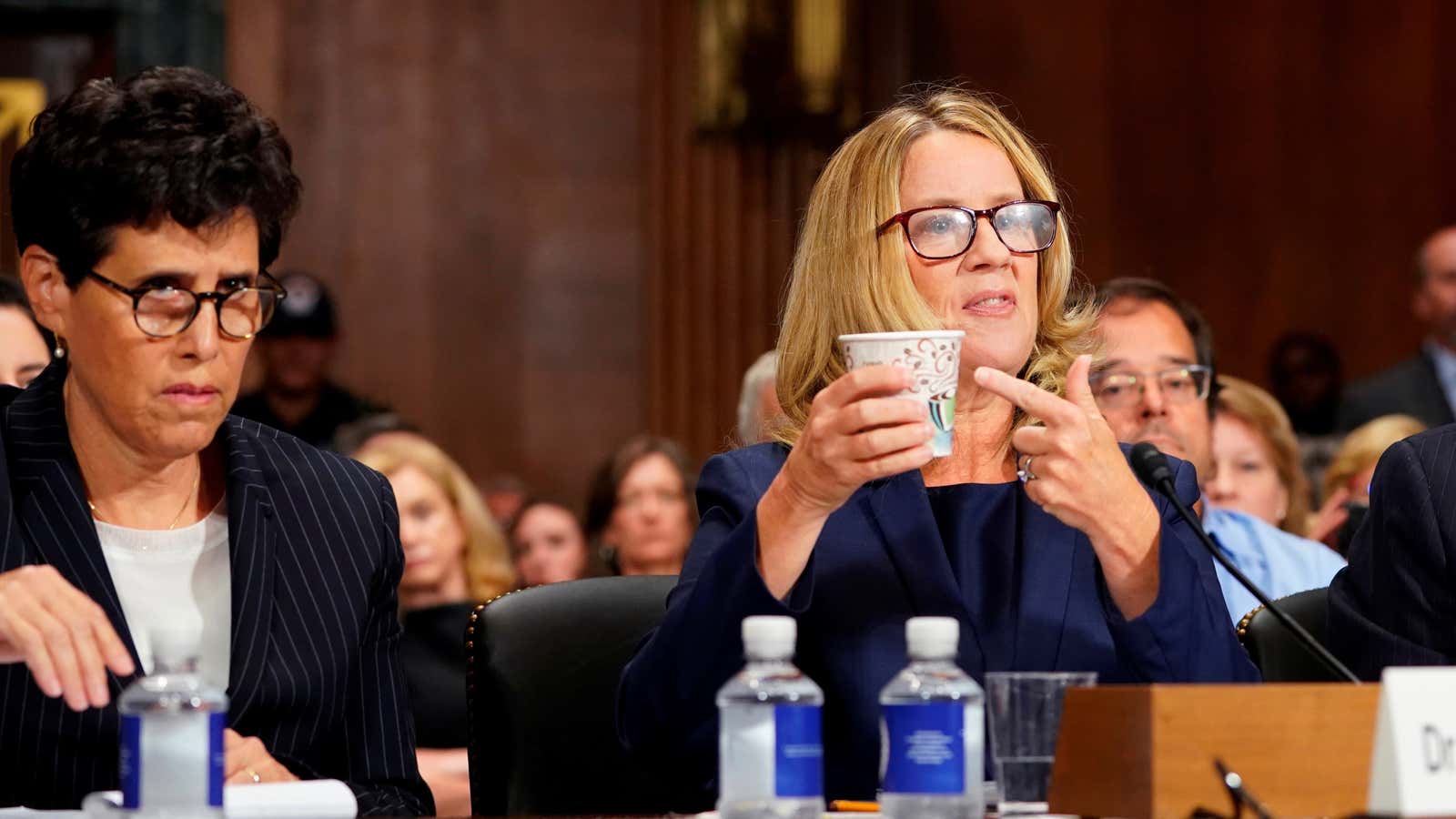The woman who accuses Brett Kavanaugh of sexually assaulting her as a teen is now a research psychologist at Stanford University Medical School and a professor of psychology at Palo Alto University. And Christine Blasey Ford’s responses to members of Senate judiciary committee and the prosecutor hired by Republicans to question her demonstrate her professional understanding.
Her work would make her exceptionally well-equipped to understand the traumatic experience that she describes and its effects on her, both immediately following, and throughout her life. Her testimony shows it specifically.
When senator Dianne Feinstein asked Blasey Ford why she didn’t talk about what the 1982 incident she saw as an attack until many years later, the psychologist noted that she experienced panic and anxiety as “sequelae” of the assault. The sexual assault, she was saying, had profound effects.
Sequela (plural, sequelae) is a medical word for consequences, describing the secondary results or effects of an infection, injury, or traumatic event. In Blasey Ford’s case, the originating trauma she’s referring to is what she saw as Kavanaugh’s attempt to rape her, while drunk, with his friend Mark Judge watching and jumping in to participate. She describes making eye contact with Judge in the hopes he’d help her while, she said, Kavanaugh groped at her clothes and was deterred only by her one-piece bathing suit and his inebriation.
Judge didn’t help, she said. He only laughed, Blasey Ford testified: “Indelible, in the hippocampus, is the laughter, the uproarious laughter between the two and their having fun at my expense.”
Although she admitted to being “terrified” about testifying, Blasey Ford said she is “100%” confident that Kavanaugh is the person who assaulted her. She clearly has a deep understanding of the incident’s effects on her psyche and life. In 2012, when she was remodeling her house, Blasey Ford demanded two front doors—claustrophobia, a fear of being trapped, is another sequela of the assault, she said. Years later, she remained fearful of not being able to escape a space, even her own home.
